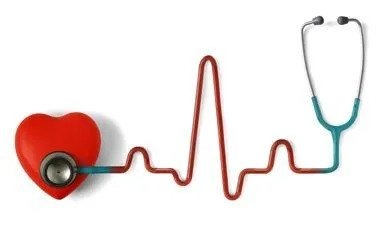- fei
- 0 Comments
Quit Smoking
If you’re a smoker, quit. It’s the single best thing you can do for your heart health. Smoking is one of the main causes of coronary heart disease. A year after giving up, your risk of a heart attack falls to about half that of a smoker.
Lighting up can increase both your blood pressure and risk of blood clots. Nearly one-third of all deaths from coronary heart disease are related to smoking and the effects of secondhand smoke. Smoking is the most preventable cause of premature death. Even if you have already developed heart disease, it is still greatly beneficial to quit smoking.
Maintain A Healthy Weight
Packing on extra pounds can increase your risk for heart disease. If you are overweight or obese, try to lose weight by eating nutritious foods and exercising regularly. In particular, people who carry excess fat around their belly are more likely to develop heart disease and diabetes.
Add more fiber, fruit, lean protein and vegetables into your diet to balance boost your metabolism and therefore maintain a healthy weight. You can also increase your physical activity levels by reducing the amount of time you spend sitting and incorporating physical activity wherever you can! Take the stairs instead of the elevator. This can become a fun challenge! The simplest one of all is walking! This is just one simple way to help keep your heart healthy.
Keep Stress Levels Low
Stress can increase your risk of heart disease by more than double! Similar to smoking and diabetes, chronic stress puts the body into constant fight-or-flight mode, triggering inflammation, high blood pressure and other unhealthy changes. But mindfulness can be a powerful antidote to that modern state of overload. By focusing on our thoughts and sensations, we can learn to control our body’s response to stress.
Practices like meditation, breath work and yoga have been shown to dial down the stress response. Research also shows that yoga improves circulation and blood pressure and may lower the risk of heart disease. Better sleep is another benefit from meditating (and other stress busting habits) on a regular basis. Poor sleep habits may be linked with a greater risk for heart disease.
Get PhysicalPhysical activity is any form of movement that works your muscles and uses more energy than you use when resting. Being physically active, along with following a healthy diet and not smoking, is one of the most important things you can do to keep your heart (and lungs) healthy. Yet, many Americans are not active enough. The good news is that even modest amounts of physical activity are good for your health. The more active you are, the more you will benefit. Physical activity, especially aerobic activity, is extremely beneficial for your heart. Physical activity strengthens your heart and reduces coronary heart disease risk factors. It can also lower blood pressure and greatly improve and manage levels of cholesterol and other fats in the blood that can be damaging to your health.
Increase Omegas
Oily fish such as sardines, mackerel, salmon and fresh tuna, are rich in omega-3 fatty acids, which are thought to be particularly beneficial for your heart because they improve your cholesterol levels. If you’re a vegetarian you can get omega-3 fats from spinach, wheat germ, walnuts, flaxseed and flaxseed oil, pumpkin seeds and more.
Omega-3 fatty acids are a type of polyunsaturated fat. We need these fats to build brain cells and for other important functions. Omega-3s help keep your heart healthy and protected against stroke and other health issues. They also help improve your heart health if you already have heart disease. Since your body does not make omega-3 fatty acids on its own, you need to get them from your diet.
Drink In Moderation
Heavy drinking does the body no favors. It can lead to weakened heart muscle and irregular heart rhythms, as well as dementia, cancer and stroke. But could drinking just a little be heart healthy? While some research suggests that moderate drinking is linked with lower rates of cardiovascular disease, the research does not prove cause and effect. For example, it could be that people who drink regularly take time to relax with loved ones, and that may be what is providing the heart benefit.
Alcohol consumption can also raise the levels of fat in the blood. People with high triglycerides often have high levels of bad cholesterol and low levels of good cholesterol. High levels of bad cholesterol can clog arteries and if a piece of plaque breaks off, a clot forms and a heart attack can result. Healthy drinking habits can greatly reduce the many issues associated with alcohol consumption.
Minimize Salt Intake
High salt intake impacts the body and your health in many ways and is linked to conditions other than high blood pressure such as heart failure/heart attack, stroke edema & thickening of the heart muscle.
If you have a diet high in salt, it’s likely that your blood pressure could be high too. This means you have an increased risk of suffering from heart disease or stroke. Cut down by trying not to use any salt at all at the table and reducing how much you use in cooking. Also, keep an eye on food labels to check how much salt you’re eating in processed foods. Cutting down on the salt doesn’t mean you have to cut out
